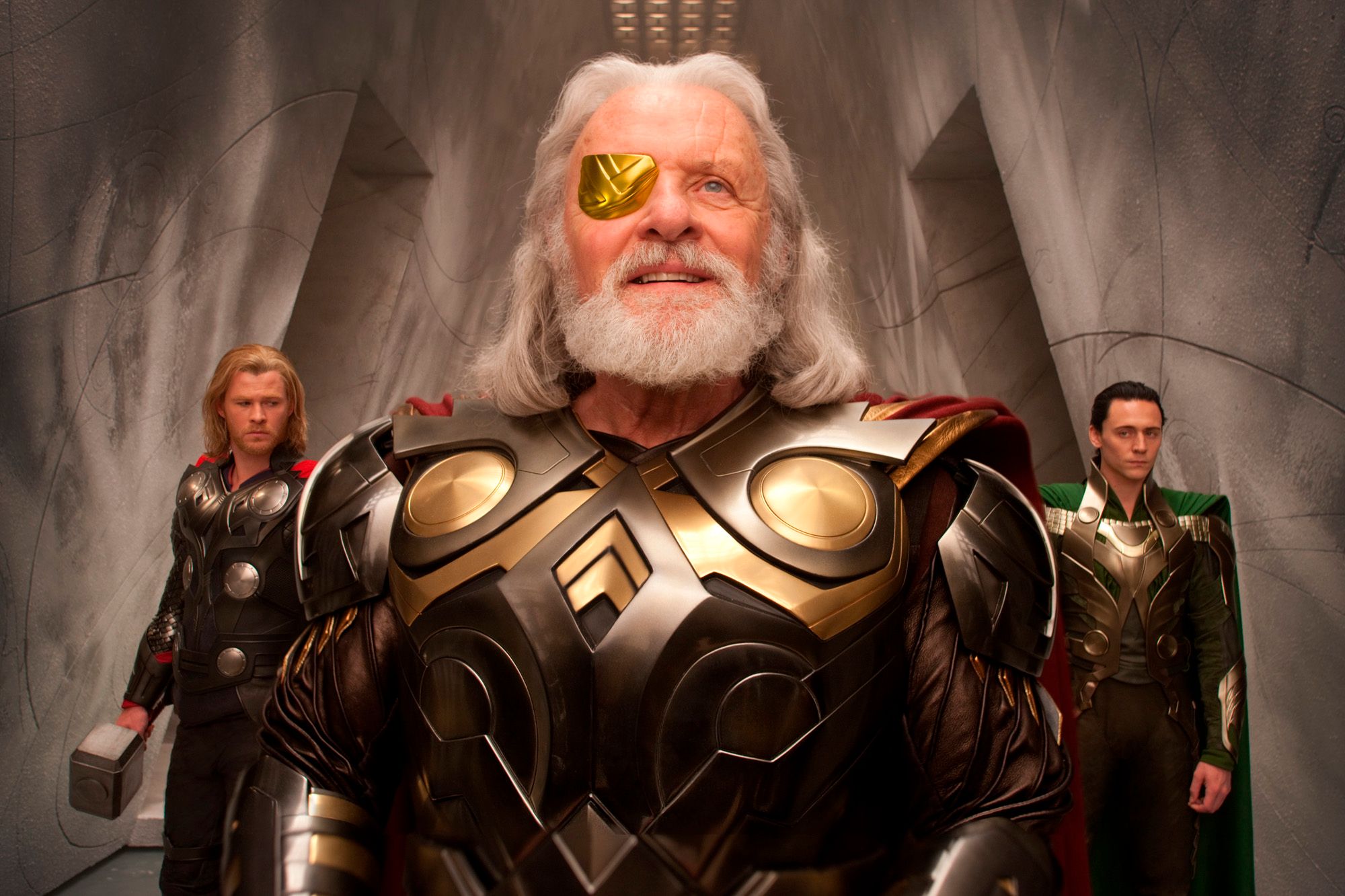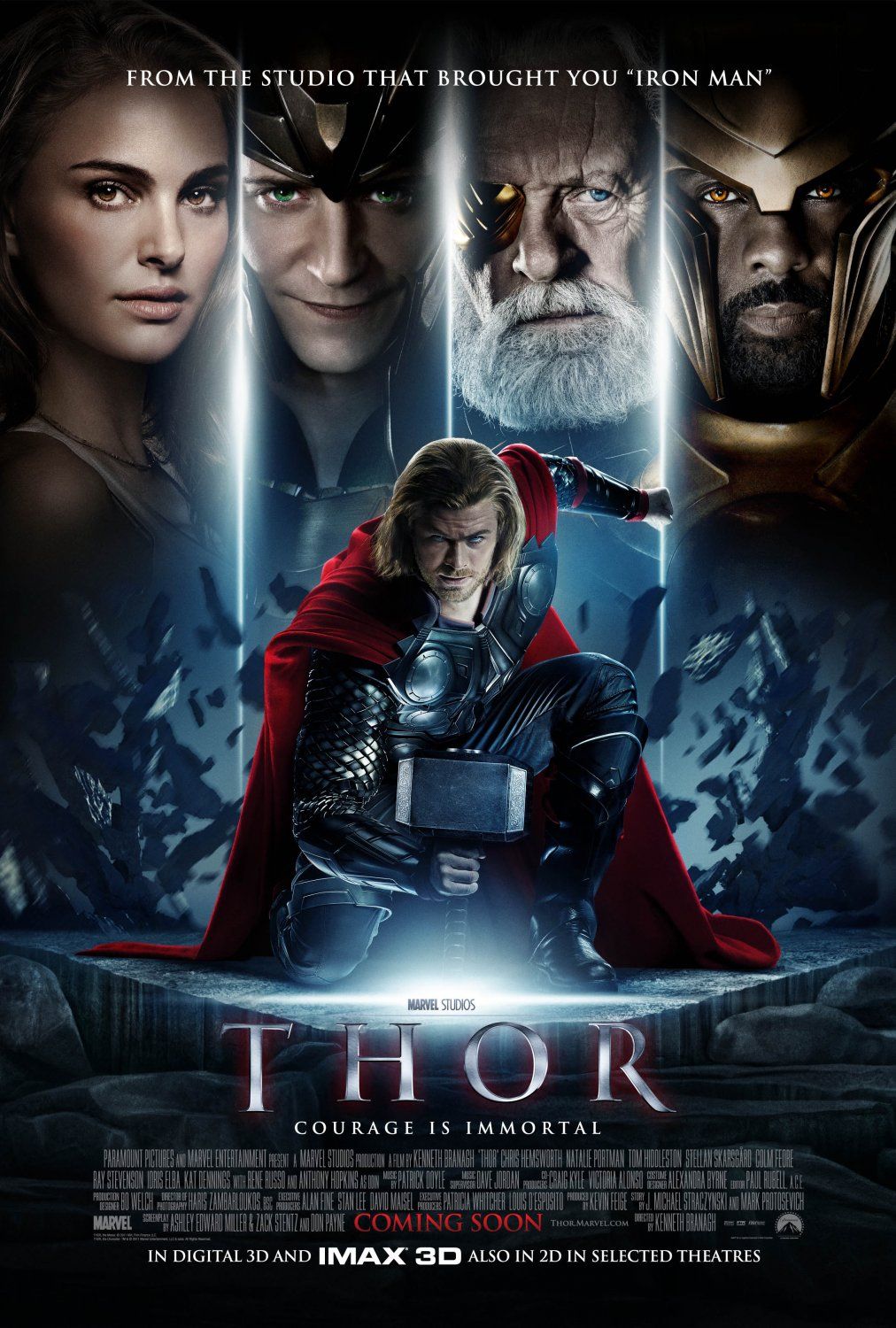Updated: Though many of the comments about this article (below and elsewhere) indicate that people read the entire thing and understood my point, enough didn't that I now realize that the tile of this post is unintentionally misleading. This is not a post about how the story presented in the movie is better than the best stories presented in the comics. It's about how Marvel's trade program is impenetrable enough and how the quality of stories over a series' 50-year history varies enough that people who enjoy Marvel movies and would enjoy reading some similar comics often end up just throwing their hands in the air and deciding to watch the movie again instead. Sincere apologies to those for whom this was not clear.
In his response to the news that Marvel’s putting a lot of their cartoons on Netflix, Tom Spurgeon noted that “the Marvel cartoons are probably a bigger factor than we realize in building a core audience for many of their properties, but I haven't seen anyone seriously engage that subject since the first X-Men movie came out.”
I don’t expect that this article constitutes “serious engagement,” but Spurgeon did remind me of my own reaction to last weekend’s Thor movie. My dominant thought as I watched it (and one that lingered into the parking lot and beyond) was that I enjoyed it more than I’ve enjoyed a Thor comic in a long, long time. Since I was a kid really. The same is true of the Iron Man films – even the second one – only replace “in a long, long time” with “ever.”
Take into consideration that I’ve yet to read Walt Simonson’s Thor or any of Matt Fraction’s stuff with either character, so I realize that my viewpoint is extremely limited. But that’s not the point. I’m not trying to claim that the story presented in Kenneth Branagh’s Thor is objectively better than every comic ever written about the same character. I do suspect however that the experience of watching it is – for most people – a more satisfying thing than the experience of trying to read the books on which it’s based. As a life-long comics fan, my surprise is that I’m not only sympathetic to that perspective, but have adopted it myself.
The discussion about whether or not movies lead people to comics is an old one. I prefer to let Mike Sterling have the last word on it, because a) he’s a retailer and most people who argue about this aren’t, and b) it makes sense. According to Sterling, “movie-related comics tend to peak in sales just before the movie’s release, before dropping down to pre-movie hype sales (or even lower) upon or shortly after the film’s debut.” I’m pretty sure I recall another caveat to that rule too: that it primarily applies to collected volumes or graphic novels that are easily identifiable as the clear inspiration for the film. In other words, Sin City and Watchmen sales temporarily benefit from an upcoming movie, but people generally don’t go see X-Men and then decide to start following the serialized periodicals. I found this to be true among my friends when Spider-Man came out. They loved the movie and would reminisce with me about all the Spider-Man comics they loved as a kid, but I couldn’t drag them into a comic book store. They just weren’t interested. Nor do people who don’t read comics all of a sudden start buying Batman monthlies because they really like Batman: The Brave and the Bold.
I finally understand this because as much as I loved the Thor movie, I’ve got zero desire to start digging into Thor comics. A large part of the reason is because Marvel – in making sure that there’s puh-lenty of Thor comics available for movie fans – has completely overwhelmed and confused me about where I might want to dive in. There’s a buttload of Thor series out right now; all with generic-sounding names that fail to make me think they might replicate some of what I liked about the movie.
None of which contradicts what Spurgeon said about “building a core audience for many of [Marvel’s] properties.” Having seen the Thor movie, I’m a bigger fan of Marvel’s version of the character than I’ve ever been. I’m just a fan of Chris Hemsworth as that character and not so interested in trying to maneuver through the comics.
One of the things that the movie got exactly right that the comics usually fail to do is the balance between Asgard and Midgard. As a kid, my favorite Thor stories were the superhero ones where he was on earth, fighting Absorbing Man or whomever, preferably with the Avengers so that his godliness stood out in stark contrast to the comparatively frail humanity of guys like Captain America and Iron Man. It wasn’t until I was older that I realized some folks actually prefer the Asgardian fantasy stories. I’d always seen those as things to be patiently endured until Thor could get back to Earth where the real action was.
One of the reasons I’m anxious to read Walt Simonson’s Thor is that he’s said to be one of the few people to get that Asgard-Midgard balance just right so that fans of both settings are equally pleased. I want to see how he does that. The film does a fantastic job by creating a story in which events occur simultaneously in both realms so that what happens in one directly affects the other. The movie’s constant shifting between the two ensures that there’s no time to get bored with either.
But it takes a specific kind of story to be able to do that and I’m not sure how filmmakers are going to repeat it in sequels. I believe that they can, but only in a limited way before the formula becomes tiresome. Fortunately, there are other limits to the longevity of these films as well: actors’ contracts, audience interest, etc. Even if the quality of the sequels measures up to this first one, we’ll only get five or six Thor movies tops before the series either fizzles out or needs to be rebooted with a fresh cast. Giving the hypothetical writers of the sequels the benefit of the doubt, let’s say that they can keep the Asgard-Midgard balance interesting for six films. With a strong team of writers, that’s possible. Doing it over 50 years of serialized comics: not so much.
And that’s where I’m getting at with this whole thing. Though the weight of history indicates that Thor 3 will have more in common with Superman III, Batman Forever, and Spider-Man 3 than everyone’s expectations for The Dark Knight Rises, it’s at least conceivable that someone could tell six good Thor stories on film. And even if they can’t, film doesn’t work the same way as comics. At least, not the same way that we’re told comics work.
Even if this first Thor movie is the only good one, it’s enough. It stands on its own and if you never watch another one, watching this one has been a satisfying experience. It’s not even important whether or not you buy the DVD or whatever. You get to choose your level of involvement. Periodical superhero comics, on the other hand, ask you to make a commitment that may or may not pay off in good stories. In fact, the more committed you are – the longer you keep reading – the more likely you are to be disappointed. As good as Simonson or Fraction or [name your favorite Thor creator] may be, you have to prune away an awful lot of less-worthy stuff to get to what you like. Movies (and TV shows) take a lot less work to find the good stuff and so are a lot less frustrating. That makes them much more satisfying for most people.
The question is: how could Marvel (or DC, for that matter) change what they’re doing to create more interest in the comics versions for people who like their superhero films?




